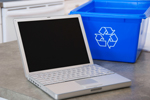- Your computer has unwanted pop-
ups informing you about computer infection. You aren't offered a safe way to remove the malicious files without paying; - You are redirected to certain websites to purchase fake security software;
- You aren't able to access web site which offer antivirus software or any other security software;
- You aren't able to use windows update to patch your system;
- You can't access any Microsoft web sites;
- Your search engine redirects you to web sites that have no connection with the thing you were searching for;
- Running programs are closing by themselves;
- Your browsing is slower then before, your internet connection is slower due to traffic that's made by your computer but not by your genuine programs.
- Limited or no access to Registry Editor(regedit), Task Manager (taskmgr.exe), Command Prompt (cmd.exe),
- System configuration utility (msconfig), Group Policy Editor(gpedit.msc), Folder options, Internet Options and other features is denied;
- In some cases you are denied to boot in Safe Mode or Safe mode with Networking;
- You will notice decreased system performance because system's resources are used by hidden malicious software;
- You can hear sounds in your speakers even if you aren't playing any music or movie files; You system may restart without any warning;
- Your installed programs stop responding frequently.
Note: These are common signs of infection, but these signs may be caused also by hardware or software issues, that have nothing to do with a computer virus.
In most cases once the computer is infected the user is denied access to various tools which can help him to disinfect the computer. If you find yourself in this kind of situation you will need to retake partial control of computer functionality to install a security software and run a full scan.

